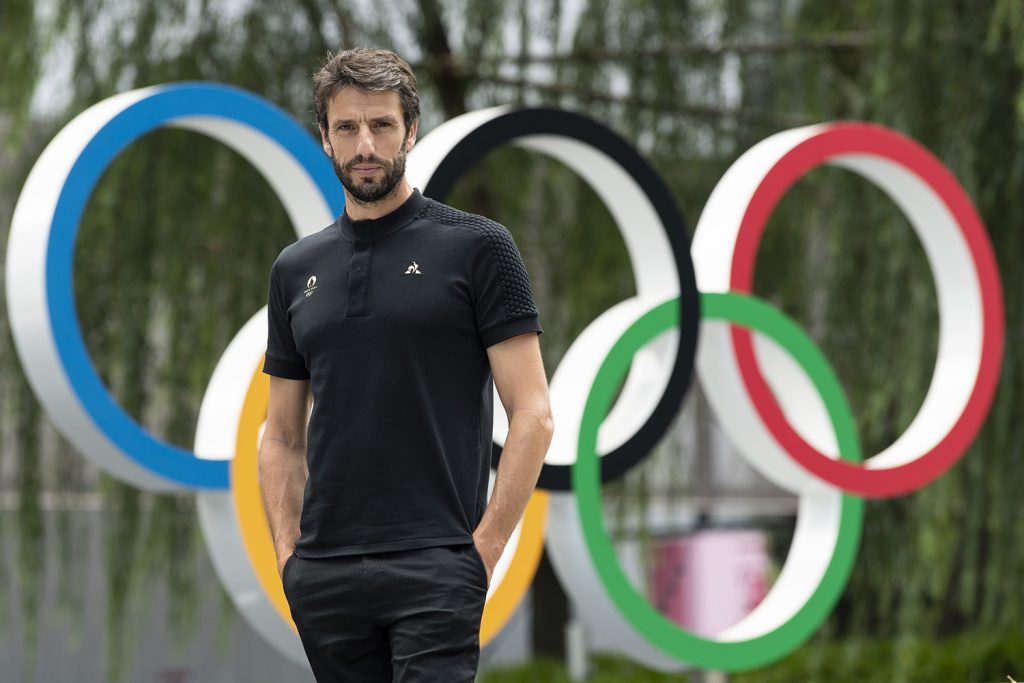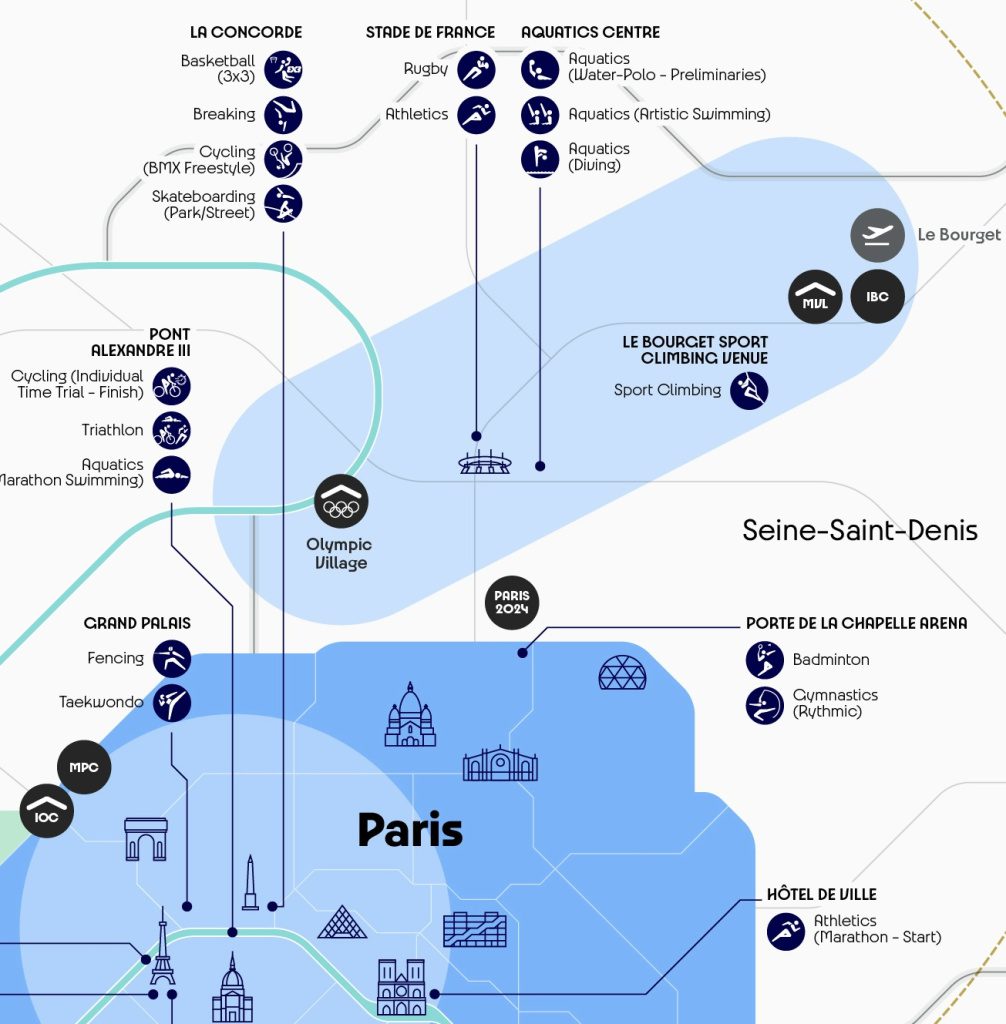Senior writer Mike Osborne questions why Paris Olympic chiefs are so complacent about the violence on the streets of the French capital.
A year out from the 2024 Olympic Games and Paris is burning.
Literally.
The Olympic host city has experienced a week of violent riots and protests after police shot and killed a teenager of North African descent during a traffic incident.
More than 700 shops, supermarkets, restaurants and banks were ransacked, looted and sometimes burnt to the ground.
The windows of one Olympic training site, the Aubervilliers Aquatic Centre, were smashed by rioters and the centre was also damaged by fire from a dozen buses burning nearby.
France’s Interior Ministry has put up to 45,000 police onto the streets each night to try and quell the latest unrest.
The city government in Paris however says it is “not worried” about knock-on security effects for next year’s Games from July 26-August 11 and Paralympics August 28-September 8.
While acknowledging being “concerned about the situation”, Emmanuel Gregoire, deputy to Paris Mayor Anne Hidalgo, said he had “no concerns about the impact” on the Olympics.
“We’re still a year away from the Games. We shouldn’t get our calendars mixed up,” Gregoire said.

Australia, and a number of other western governments including the US and UK, have warned their citizens in France to exercise a high-level of caution over the rioting.
The Australian Government’s Smart Traveller website advised caution that “violent attacks against tourists can occur, especially late at night in tourist areas” including hotspots at the Champs-Elysées, the Louvre, the Palais Royal and the Latin Quarter in central Paris.
Before the riots erupted, the country’s ability to host major international events including the upcoming Rugby World Cup and the 2024 Olympics had already been called into question over major failures in crowd management at the 2022 UEFA Champions League soccer final at the Stade de France.
That venue, set to form the centrepiece of the Games, lies in Saint-Denis – the troubled northern suburb of Paris which has been shaken by the latest violence.
The Olympic Aquatic Centre is also in Saint-Denis, opposite the stadium, and the overlapping communes of Saint-Denis, Ile Saint-Denis and Saint-Ouen, located some 7km north of the centre of Paris, are the site of the Olympic and Paralympic Village.
The village will house 14,000 athletes and officials during the Olympic Games then 9,000 athletes and officials during the Paralympic Games.
Even French athletes are concerned about the latest street violence, with the national football team issuing a rare statement calling for calm.
“Violence must stop to leave way for mourning, dialogue and reconstruction,” the team said on star player Kylian Mbappe’s Instagram account.
The Paris Games will welcome around 10,500 athletes plus some 3,500 officials and 1,300 journalists and media technicians who will all come under the Olympic security umbrella. But they still have to get into and across Paris to their villages and venues.
The Australian Team will include approximately 780 people with 470 athletes and 310 officials.
The experience from Tokyo 2020, postponed to 2021 because of the COVID pandemic, proves the Games will go on, but security is looming as the X-factor for Paris.
The bigger question is – how will the host city keep 15 million free-ranging tourists safe during the Olympics and Paralympics?
The French are no strangers to protests, using the national motto of liberty, equality and fraternity to take to the streets en masse.
Earlier this year demonstrators hit the streets to protest President Emmanuel Macron’s new pension plan, which pushed the retirement age from 62 to 64. In Australia the retirement/pension age is 65-67.
And the anti-government Yellow Vests Movement staged protests in late 2018 against President Macron’s fuel tax hike implemented to help reduce emissions and combat global warming.
The latest riots were sparked by the shooting death of a 17-year-old boy of Algerian/Moroccan descent which stoked long-standing complaints of discrimination and systemic racism among police.
President Macron, who postponed a state visit to Germany to deal with the latest crisis, denies French law enforcement agencies suffer from systemic racism.
Sports Minister Amelie Oudea-Castera says the government has “taken measures in recent days to again step up security of infrastructure” linked to next year’s Olympics.
“The nation is damaged by all of this. What’s going on obviously isn’t good for France’s image,” she said.

Also tarnishing the Paris Games are recent raids on the headquarters of the organising committee as part of a corruption probe. Police are investigating favouritism and misuse of public money in the allocation of lucrative construction contracts.
Paris 2024 Olympics Organising Committee President Tony Estanguet says his people are cooperating with the investigation.
Despite all the issues, Estanguet – a three-time Olympic canoe slalom champion from Sydney 2000, Athens 2004 and London 2012 – says security preparations for the Games will turn Paris into “the safest place in the world”.
“If you want to be safe, come to Paris for the opening ceremony,” he says.
Michael Osborne has been a journalist for more than four decades including 35 years with the national news agency Australian Associated Press, rising from junior reporter to Editor.
He was AAP Editor for 11 years and served four years as Head of Sport and Racing. He was also posted to London and Beijing as AAP’s Bureau Chief and Foreign Correspondent.
He has worked at six Olympics and five Commonwealth Games, covered tennis grand slams, golf majors, international cricket, rugby world cups and numerous sporting world championships. He also co-ordinated and managed AAP’s teams and coverage at three Olympic Games in Athens 2004, Beijing 2008 and London 2012.


Discussion about this post